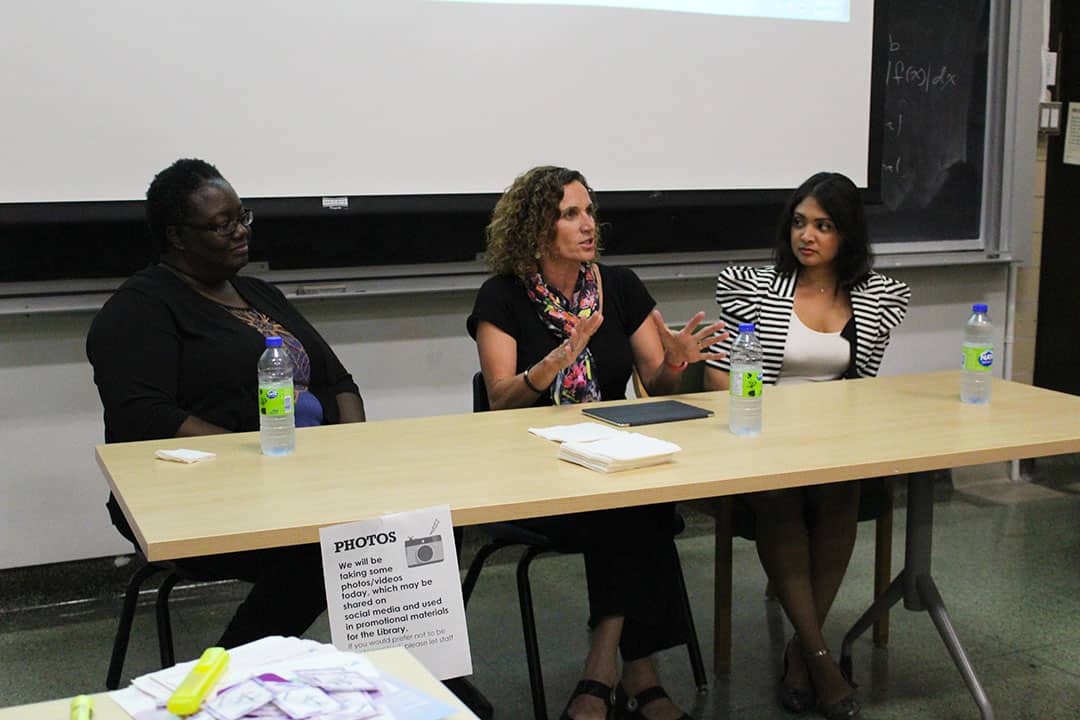Followed by a screening of the inspiring blockbuster movie Hidden Figures, a panel discussion about women in science, technology, engineering, and math (STEM) took place on Wednesday, September 20. The event was held in collaboration between the U of T chapter of Women in Science and Engineering (WISE) and the Engineering and Computer Science Library as part of Science Literacy Week.
Hidden Figures is based off the book of the same title, which chronicles the story of three African-American female mathematicians at NASA named Dorothy Vaughan, Mary Jackson, and Katherine Johnson. Their brilliant work went unrecognized in one of the US’s most monumental and public missions: putting a man in space. The women were relentless in the face of blatant racial, gender, and workplace inequalities, and with astounding perseverance, they went on to make history.
Panelists at the screening included Dr. Kelly Lyons, an Associate Professor and Associate Dean of Academic Affairs in the Faculty of Information at U of T; Ella Murphy, a Civil Engineer; and Krishana Sankar, a PhD candidate in the Department of Physiology at U of T. After the film, they delved into a pertinent discussion that ranged from their professional journeys, the evolution of the landscape for women in STEM, and the personal struggles they faced in traditionally male-dominated fields.
From company-organized female conferences, to companies marketing their sponsorship of female employees at hiring fairs, the panelists agreed that positive changes were happening in the STEM fields.
However, they were also unanimous in their agreement that more work needs to be done, noting the discrepancy between the number of women at higher levels and those at lower, managerial positions. “In my department, there are lots of girls. But one thing you’ll notice in the higher up positions, for example the professorial position… there are less women,” said Sankar.
“I tend to think I’m capable… [but] my initial reaction is ‘oh, no I’m not good enough for that, and I don’t have enough experience for that,’” said Lyons when describing her personal challenges. She then emphasized the impact of having a supervisor who believed in her. “I started to realize that if somebody [I respect] thinks I can… maybe they know more than I know,” she said.
“I had to learn to trust my instincts and myself and trust that I was competent enough to do my work,” reflected Murphy. She went on to remind the audience that “what you’re bringing to the party is as valuable as everybody else there.”
Confidence is often cited as the key to achieving a goal. But Lyons had an alternative approach. “What’s more important than confidence is being able to take a risk… It would be easier to do than saying ‘I just need to be more confident,’” she said. Murphy added that taking the risk “helps people around you to understand that you’re interested and that you’re available,” even if your initial attempts are not what you hoped for.


